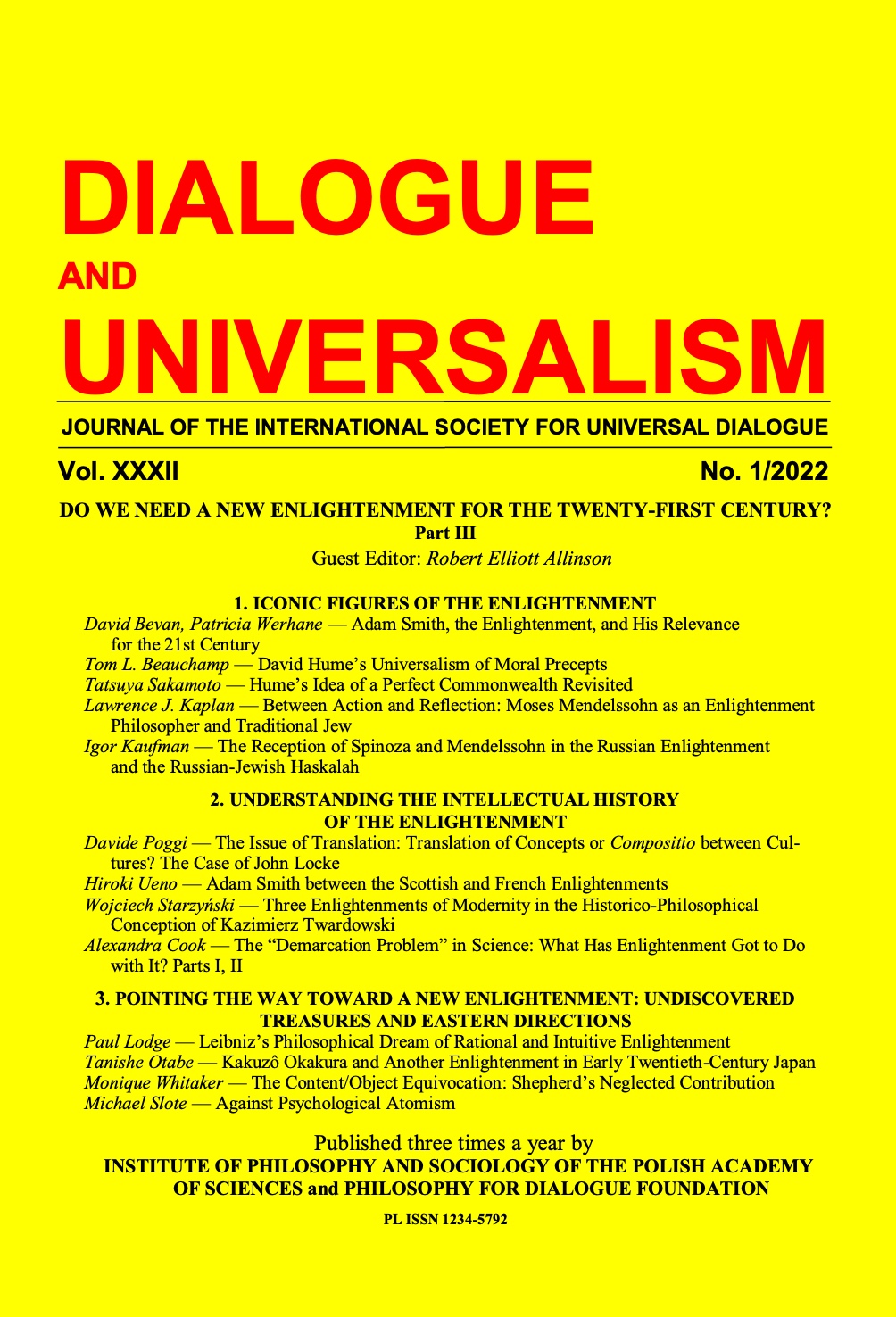DAVID HUME’S UNIVERSALISM OF MORAL PRECEPTS
DAVID HUME’S UNIVERSALISM OF MORAL PRECEPTS
Author(s): Tom L. BeauchampSubject(s): Philosophy
Published by: Instytut Filozofii i Socjologii Polskiej Akademii Nauk i Fundacja Filozofia na Rzecz Dialogu
Keywords: David Hume; East-West differences; human rights; humanity; language of morals; morality in common life; normative ethics; standard of taste; universally shared morality; virtue ethics
Summary/Abstract: This article presents an original interpretation of David Hume’s eighteenth-century writings in moral philosophy as universalistic and normative, and not as merely psychological, metaethical, empirical, and the like, which has been common in many interpretations of Hume. Whether his views should or should not be regarded as a type of general moral theory such as utilitarianism is not considered, although I argue that Hume is deeply committed to a form of virtue ethics. I also argue that Hume sees the fundamentals of morality as a human phenomenon that is universally applicable to, and universally shared across, cultures and geographical regions. In this way Hume relies heavily on his conception of a universally shared common morality, which he refers to as the morality present “in common life.” This morality is a major foundation of his moral philosophy.
Journal: Dialogue and Universalism
- Issue Year: 2022
- Issue No: 1
- Page Range: 33-46
- Page Count: 14
- Language: English

